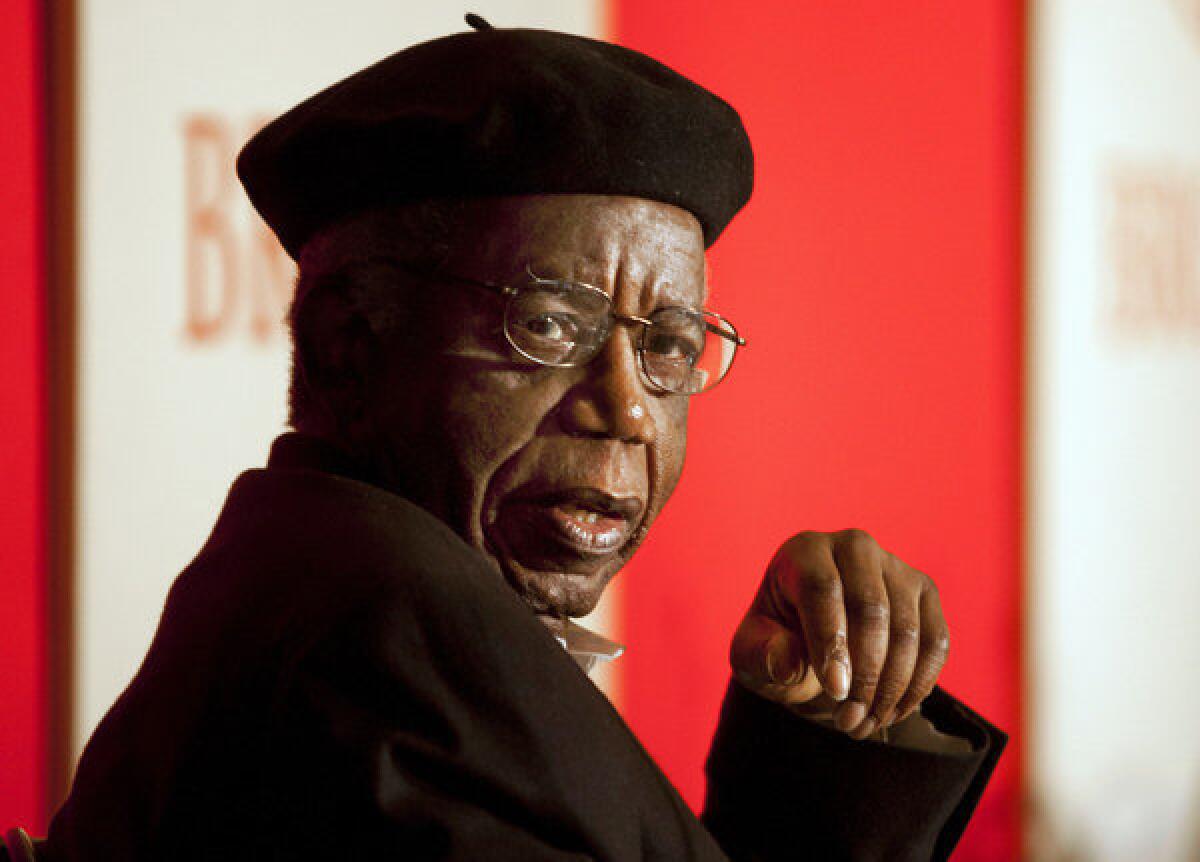The world mourns author Chinua Achebe

In Lagos and London and many other places, the world mourned the great African novelist Chinua Achebe, who died Thursday in Boston at 82.
Achebe was best known to American readers for his novel “Things Fall Apart.” Published in London in 1958, it tells a story set against the backdrop of the sunset of British colonial rule in Nigeria. It was translated into dozens of languages.
“It was in his famous novel ‘Things Fall Apart’ that many Africans saw themselves in literature and arts at the time when most of the writing was about Africans but not by Africans,” South African President Jacob Zuma said.
Achebe wrote five novels and many essays and works of criticism. In an appreciation in the New Yorker, Philip Gourevitch wrote: “As a storyteller, as a voice of his nation, as a cultural impresario, an intellectual combatant and provocateur, Achebe gained with age the status in Nigeria of a bard and a sage that the modern world rarely affords to writers.”
When Achebe won the Man Booker International Prize in 2007, South African novelist and friend Nadine Gordimer said, “Chinua Achebe’s early work made him the father of modern African literature as an integral part of world literature.’
Upon learning of his death, Gordimer offered this advice: “read, read, read all his work, from ‘Things Fall Apart’ to his last work.”
In Africa, many leaders remembered Achebe as a man whose works helped define the African spirit.
Nelson Mandela said that during his time in prison, Achebe was a writer “in whose company the prison walls fell down.”
“We have lost a great son and the ‘Father of African Literature,’” said Kenyan Prime Minister Raila Odinga
While he was alive, Achebe declined to accept many accolades from the Nigerian government—in the 1960s, he was Minister of Information for the short-lived Republic of Biafra during its failed war of succession from Nigeria. But on Friday, Nigerian President Goodluck Jonathan praised Achebe as “an acclaimed writer, scholar, tutor, cultural icon, nationalist and artist of the very first rank.”
Earlier this week, a bomb blast killed 22 members of Achebe’s ethnic group, the Igbo people, in the Nigerian city of Kano. The Nigerian writers Wole Soyinka and J.P. Clark cited that attack in their farewell to Achebe in the Guardian
“We have lost a brother, a colleague, a trailblazer and a doughty fighter,” the wrote. “[We] cannot help wondering if the recent insensate massacre of Chinua’s people in Kano, only a few days ago, hastened the fatal undermining of [his] resilient will,” they wrote.
Penguin Books published Achebe’s final book, the memoir “There Was a Country: A Personal History of Biafra,” in 2012. Simon Winder, publishing director at Penguin in the U.K., called Achebe an “utterly remarkable man.”
“Chinua Achebe is the greatest of African writers and we are all desolate to hear of his death,” he said.
ALSO:
A history of a person and country in Chinua Achebe’s ‘There Was a Country’
Stephen King and his wife Tabitha pledge $3 million to local Bangor library
More to Read
Sign up for our Book Club newsletter
Get the latest news, events and more from the Los Angeles Times Book Club, and help us get L.A. reading and talking.
You may occasionally receive promotional content from the Los Angeles Times.








